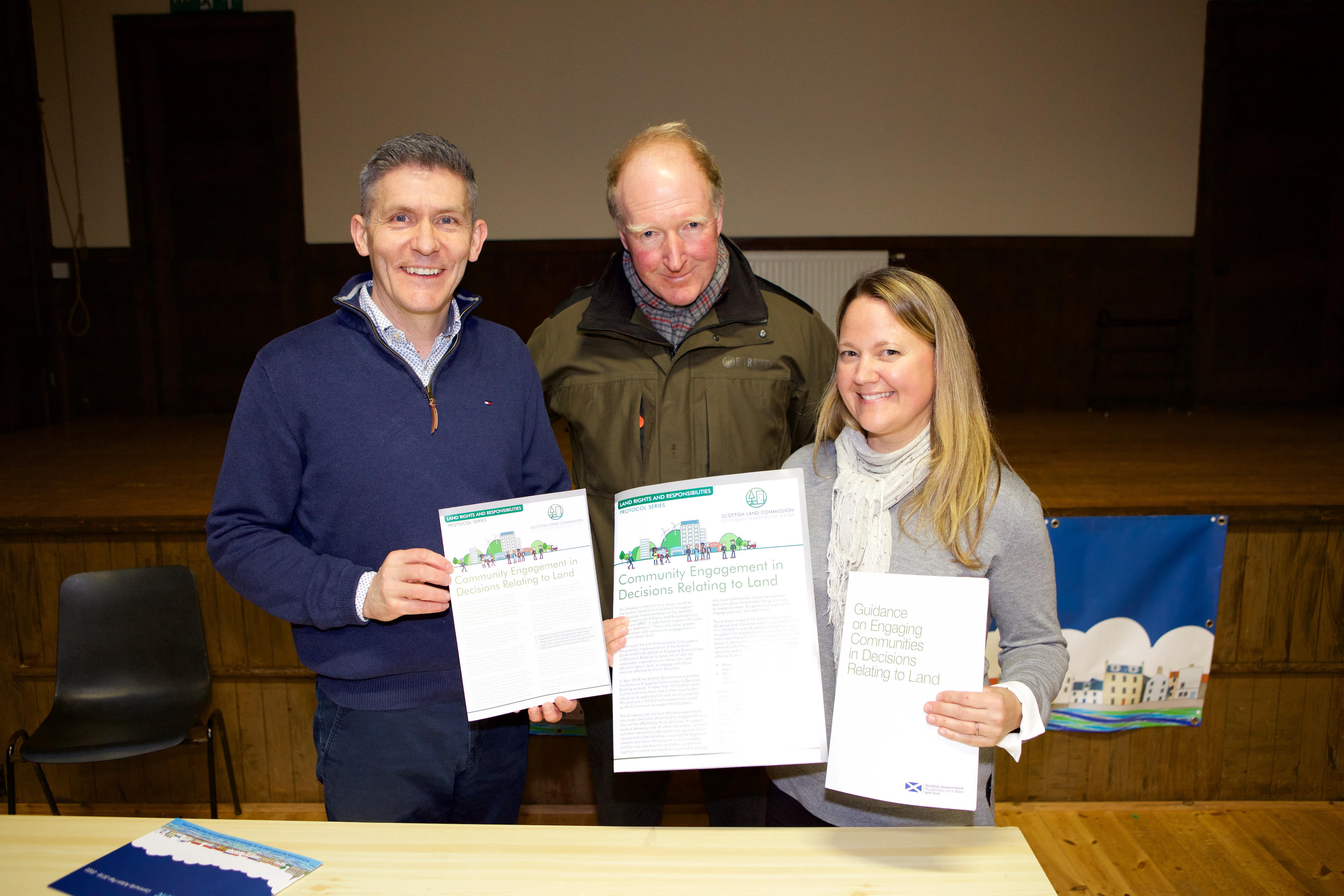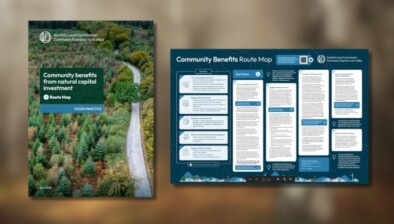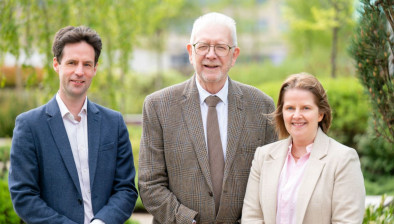Scottish Land Commission champions community engagement for successful land management
A new Protocol and toolkit that sets out practical advice on how landowners, land managers and communities can work together to make better and fairer decisions about land use has launched today by the Scottish Land Commission.
The Protocol supports the Guidance on Engaging Communities in decisions relating to land, which was published by the Scottish Government in April last year. It is the first in a series of Protocols that the Land Commission will produce to encourage practical implementation of the principles within the Scottish Government’s Land Rights and Responsibilities Statement (LRRS).

(from left) Stuart Bridges, member of St Monans & Abercrombie CAP Committee, Edward Baxter, member of East Neuk Estates Group and chair of ENCAP, Kirsty Tait, community engagement advisor with the Scottish Land Commission
The first Land Rights and Responsibilities Protocol focuses particularly on Principle 6: “There should be greater collaboration and community engagement in decisions about land”.
The Protocol highlights the benefits for all parties: genuine engagement is good for land owners because it can reduce potential conflict, help make businesses more resilient and promote innovation. Meanwhile communities will be better informed and people will have a better opportunity to engage, understand and influence potential change and opportunities.
The Commission has produced a toolkit to support land owners in engaging with communities to accompany the Protocol including a ‘decision map’ detailing engagement methods and what is expected of land owners and managers in different situations and a guide to engagement plans to support the community engagement process.
Scottish Land Commissioner, Sally Reynolds, explained that the Protocol defines standard good practice for engagement over land use and management.
Ms Reynolds said: “Early and open engagement by those who own or manage land with the local community should be part of normal business practice. Everyone benefits from knowing about decisions that might affect them and by working together and engaging in a process, it is easier to make progress.
“We have devised the Protocol and the toolkit to clearly show the practical approach to engagement expected when changes to land use are being explored.
“We believe it will promote an open approach to decision making, all of which is a vital part of increasing the accountability of land ownership and making the most of opportunities.”
One initiative that illustrates good practice in terms of the principles of community engagement is the East Neuk Community Action Plan (ENCAP) Steering Group in Fife, which has successfully brought together landowners, community groups and others in to community-led planning. Partners include the East Neuk Estates Group which forged strong relationships with community groups, responded to the priorities they identified and integrated these into their own estate and land-use plans.
The Land Commission will produce a series of Protocols on different subjects by working closely with stakeholders representing a range of interests.
Ms Reynolds added: “The Protocols will be short, clear, practical and fair to all parties, setting out clear expectations of what ought to happen in normal circumstances.”







